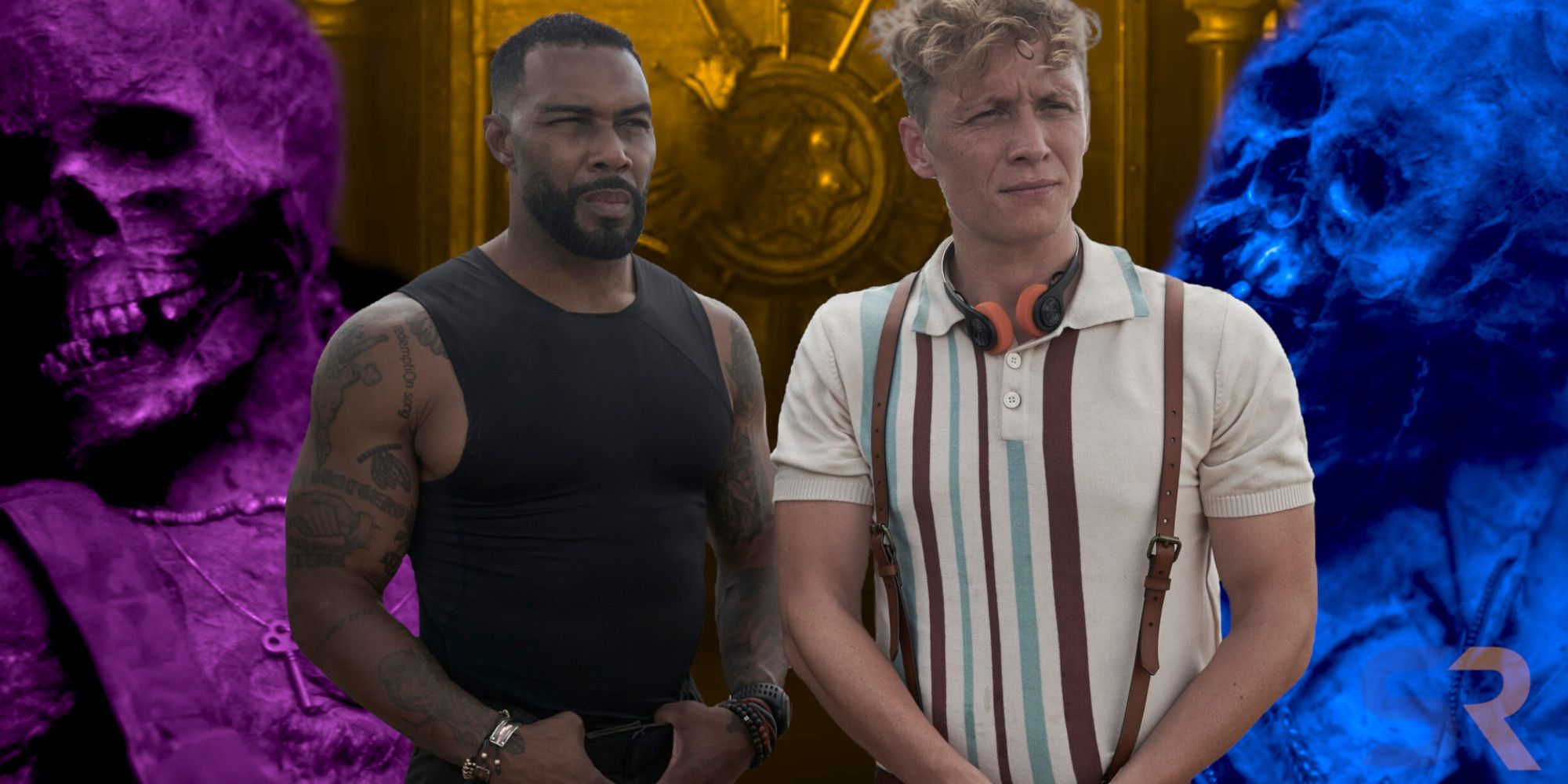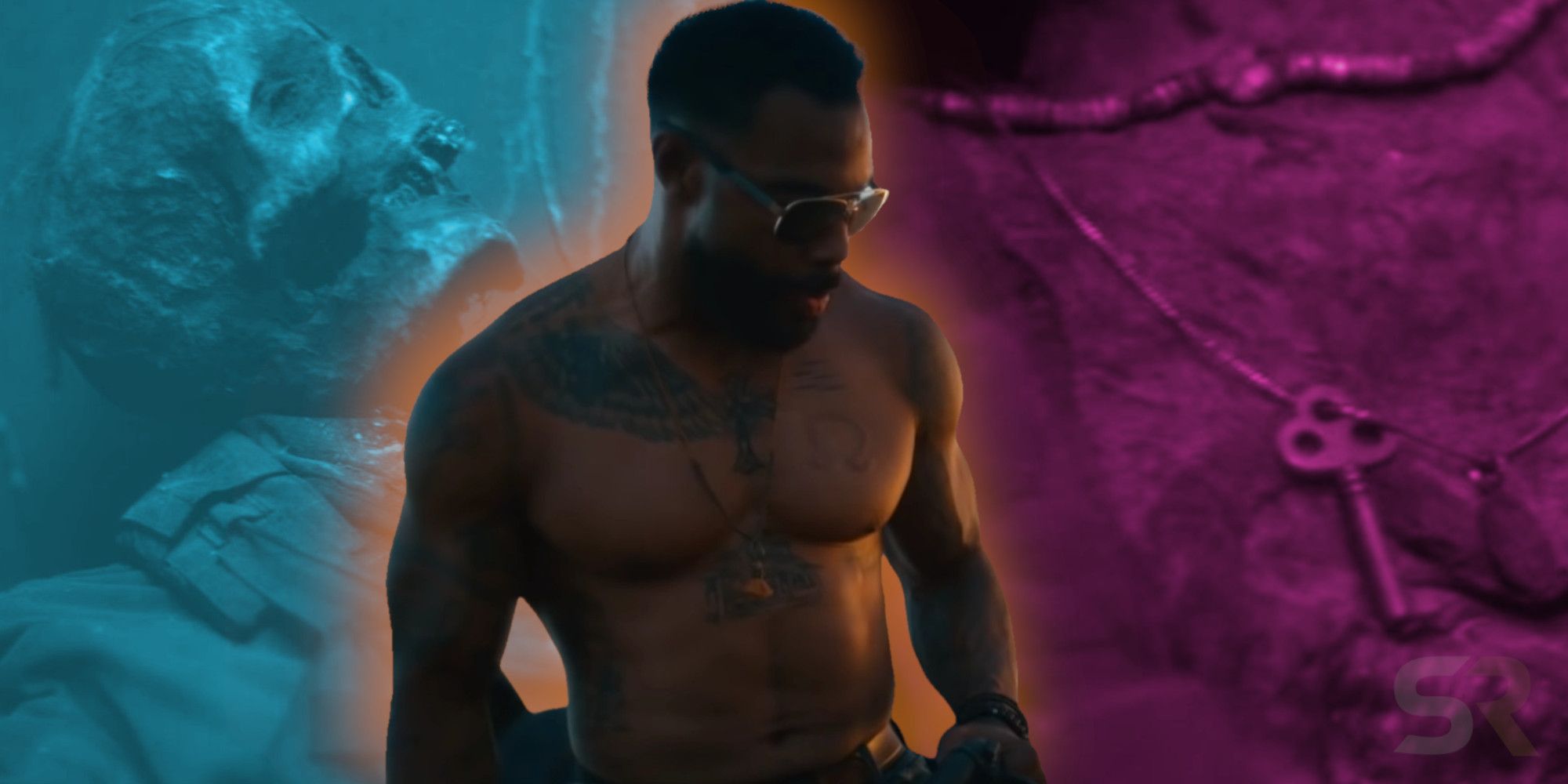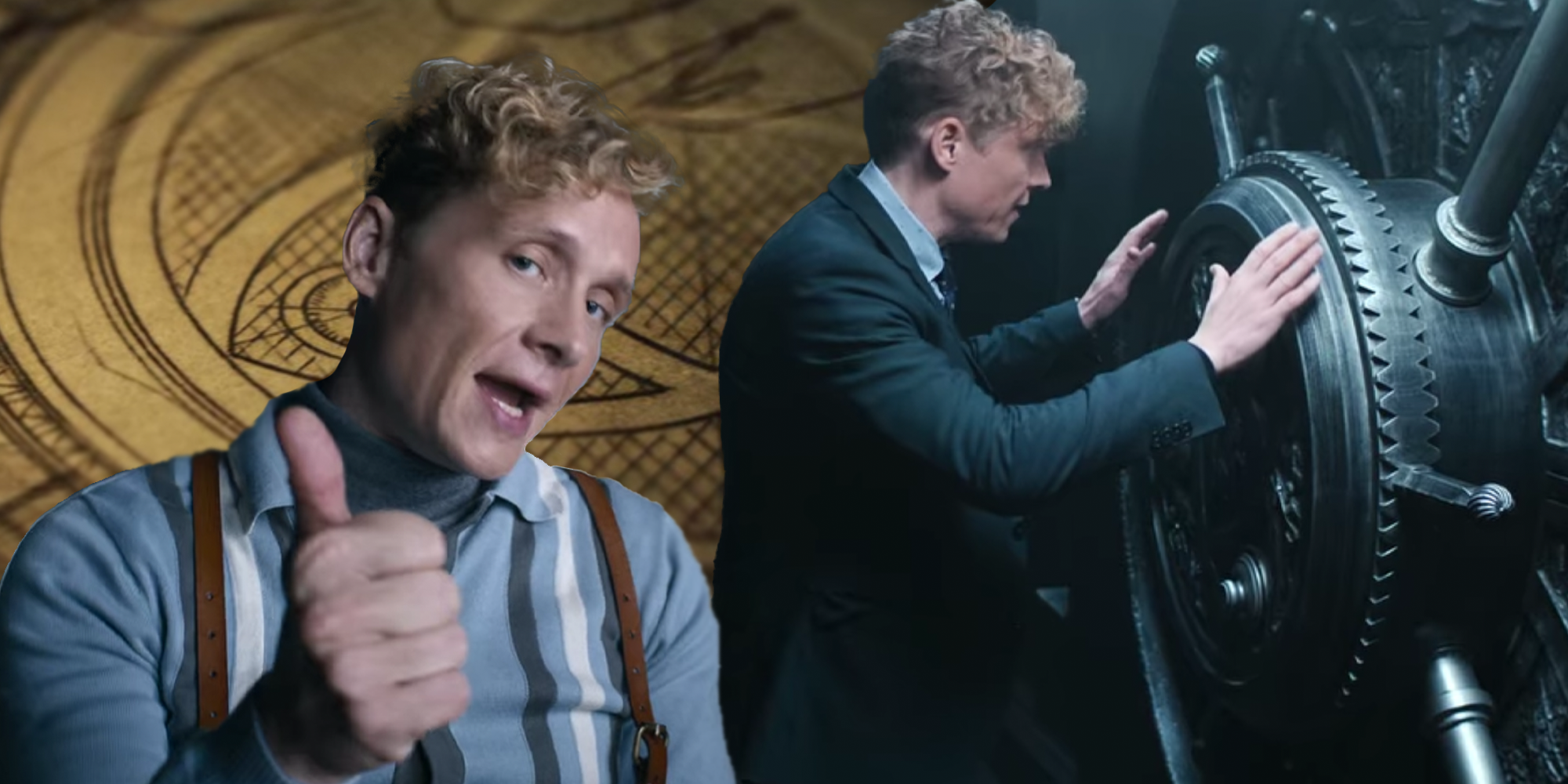One of the craziest theories to spin out of Zack Snyder's Army of the Dead was the time loop theory, and now Army of Thieves adds even more to the conversation. While both movies seem like mostly straightforward genre films, both include scenes where characters suggest there could be some sort of time loop at play, suggesting there's even more to Zack Snyder's Army of the Dead franchise than meets the eye.
Snyder is building out a new "Snyderverse" of genre-busting films on Netflix, started by Army of the Dead with prequel Army of Thieves now expanding that roster before the arrival of the animated prequel series, Army of the Dead: Lost Vegas, and the newly titled Planet of the Dead. While the movies are connected by a zombie outbreak in Las Vegas, Snyder is looking beyond a simple zombie franchise.
Outside of zombies, one of the biggest unifying factors between the two movies is the repeated tease of some kind of time loop referenced by some of the characters, and by Snyder himself. While the teases could be a simple throwaway joke or function as a metaphor, any mention of time travel is a surefire way to spawn all sorts of crazy theories, as is the case with Army of the Dead, and now that theory gets a bit of new life (and maybe some recontextualization) thanks to Army of Thieves.
Army of the Dead's Time Loop Explained
Army of the Dead contained a number of references to a potential time loop, beginning with Dieter's (Matthias Schweighöfer) opening scene where he describes the Götterdämmerung safe he's being hired to crack as "a doorway to another realm" showing a near-religious reverence for the safe, telling Scott Ward (Dave Bautista) and Maria Cruz (Ana de la Reguera) "providence has brought you to me. We go through it together."
The mild tease gets a major upgrade when the team finally arrives at the vault in the basement of Bly Tanaka's (Hiroyuki Sanada) Casino in zombie-infested Las Vegas, where they find another team has already tried, and failed, to open the safe. Only it doesn't look like any ordinary team. Several emaciated bodies lying in a hallway have very similar clothes and gear to members of the Army of the Dead team, which the philosopher turned soldier Vanderohe (Omari Hardwick) points out, "is it another team, or is it us, Dieter? Think about it. Us. I mean, look at them. It's us. It could be us in another timeline, and we're caught in some infinite loop of fighting and dying, fighting and dying, fighting and dying. And Tanaka... the puppet master. Devil. God. And we, you, me, Guz, and the rest of the team, simply pawns in some perverse play where we're destined to repeat our failures. And finally, in some mind-bending, ironic reveal... it all begins again."
The scene is played as Vanderohe simply waxing philosophical and razzing Dieter, but the very apparent similarity between the dead bodies and the team members makes it hard to completely dismiss, although there's also not quite enough present to embrace it as proof of something bigger. It's important to consider the context. This is a line being spoken in a zombie movie wrapped references to Richard Wagner's ring cycle opera and Joseph Campbell's The Hero with a Thousand Faces where the characters are in a Las Vegas that is full of Alpha zombies, who are people who have literally died and been reborn again, possibly due to a conspiracy on the part of grand puppetmasters like the U.S. government and billionaire Bly Tanaka.
To punctuate Vanderohe's metaphor, Army of the Dead ends with the government dropping a nuclear warhead on Las Vegas, seemingly wiping out all the people and zombies within the city before... "in some mind-bending, ironic reveal..." Vanderohe emerges from the ashes with the money from the Götterdämmerung, acquires a private jet to fly him to Mexico City, where, just before landing, he discovers he was bitten and infected by the Alpha zombie, Zeus, and "it all begins again." So, the time loop concept functions as a metaphor that compliments and expands on the plot and themes of Army of the Dead, leaving no major loose ends to resolve... but does that also rule out the possibility of some kind of actual time loop being at play?
How Army of Thieves Expands the Time Loop Theory
If a movie about a casino heist in zombie-infested Las Vegas seems like an unlikely story to set up a secret time loop plot, then Army of Thieves might be even more of a surprise. The smaller Dieter-centric prequel movie only references the zombie outbreak in the background and stays far away from aliens, robot zombies, and government conspiracies, but it does expand the mythology surrounding the safes Hans Wagner designed, inspired by his namesake Richard Wagner's epic Ring Cycle opera, also revealing all four safes, named Das Rheingold, Die Walküre (The Valkyrie), the Siegfried, and the Götterdämmerung were all owned by Bly Tanaka, Vanderohe's "puppet master."
There is an air of mystique around the safes, with the intro scene revealing Hans Wagner designed them following the tragic loss of his wife and child, designing them to be uncrackable, but there was also a fifth safe "capable of containing all his anguish and misery," which he locked himself into, and it became his tomb, dropped to the bottom of the ocean. Outside of the mytological inspirations and ornate decorations of the safes, nothing appears to by overtly mystical about them, although upon cracking the third safe, Dieter comes to a grand, personal realization about the nature of Wagner's work, saying he "finally understands" that "in order to understand a work, you must engage with it." However, on the inside, they're all apparently just normal safes, simply containing the expected money.
Dieter seems to have a stronger attraction to the Götterdämmerung in Army of the Dead than any of the safes in Army of Thieves, referring to it as "a doorway to another dimension" and even telling Vanderohe before he begins cracking it, "if I can open it, it will be either destruction or renewal. Death... or rebirth," in reference to the safe's name, a German translation of Ragnarök, representing the death of the gods and rebirth of the world for a new age. He leans into the idea of "providence," fate, or destiny bringing the team together, telling Vanderohe "the only thing that is left is to turn the wheel. As if it was inevitable that we won. Mr. Vanderohe, would you do me the honor," asking the man who would become the (apparent) sole survivor to emerge from the ashes of Las Vegas to reform the world in his image, to open the Götterdämmerung.
Army of Thieves does even more to establish Dieter's perception of that destiny. In the prequel, he has multiple dreams in which he's surrounded by zombies, the last of which shows him in front of a safe that could be in Las Vegas (although it looks nothing like the Götterdämmerung or Bly casino), where he's backed up to the door and grabbed by a zombie hand, not unlike his final moments in Army of the Dead, before he jolts awake. Korina suggests "Maybe they're prophesies, not dreams. Maybe you saw your own death. Or maybe simply your psyche's manifestations of your own self-doubt and feelings of inadequacy. You know you should be that big tough man. Be able to fight them. And yet again and again they just destroy you." Interesting enough, both of those statements can easily be true. Dieter's zombie dreams did predict his death, (or at least his apparent death, neither the dreams nor Army of the Dead show him actually bitten or dying on screen), and Dieter did need to overcome feelings of inadequacy and self-doubt, which we see him rise above in Army of the Dead when he heroically closes Vanderohe in the safe, apparently sacrificing himself in the process.
Of course, the most interesting part of what Korina said is the end, in which she echoes Vanderohe's words nearly identically, referring to a cycle of fighting and dying, bringing us back to the idea of a time loop. As with Army of the Dead, all of the time loop or other prophetic teases in Army of Thieves work as metaphors within the movie, resolving both plot points and character arcs without any lingering questions that feel like sequel bait, other than the fact that it's now a recurring theme between both of the current installments of Netflix's Snyderverse films.
The Time Loop Theory Works as a Metaphor, But Is There More?
Time loop theories are hard to ignore because they're fun, but it's important to not let them get ahead of the actual story and themes presented. Both Vanderohe and Dieter have stories that establish them as part of a natural cycle of death and rebirth, fighting and dying. Army of Thieves introduces Dieter by his real name, Sebastian Schlencht-Wöhmert, showing his boring, lonely lfe in a dead-end job, and running a YouTube channel nobody watches. Through his passion for the Hans Wagner safes, he's introduced to a new world of thieves. He fully realizes his passion as a master safecracker, cracking three of the four "uncrackable" Wagner safes, only to be caught at the end by Interpol, but Gwendolin turns herself in to get him off the hook. Sebastian takes on a new name, "Ludwig Dieter," and he goes to Nevada to find the Götterdämmerung, marking the metaphorical death of Sebastian and birth of Dieter, who's fully embraced his destiny as the man who would crack the Götterdämmerung.
Meanwhile, Army of the Dead's opening sequence shows Vanderohe had a master's degree in philosophy, juxtaposing the shots of him holding his family picture from his graduation with shots of him using his giant buzzsaw to mow down zombies, efficiently establishing his own metaphorical death and rebirth. Vanderohe's story won't just be contained to Army of the Dead, though. Snyder said Vanderohe "saw something" during the zombie war that changed him, a story expected to be told in the Army of the Dead: Lost Vegas anime series detailing more of the story of the Army of the Dead characters during the events of the zombie war depicted in Army of the Dead's opening credits.
Whatever happened, Vanderohe has a unique perspective on the whole situation, and even prophetically quotes Joseph Campbell, foreshadowing his own destiny at the end of Army of the Dead "It is by going down into the abyss where we recover the treasures of life. Where you stumble, there lies your treasure.” In many of the mythologies Campbell studied, he noted it's at a hero's lowest, darkest point, often literally descending into a cave or some deep place, where they would gain the treasure or power they sought. The significance of the Götterdämmerung is key here, as it's the reason Vanderohe survives the nuclear blast, allowing him to emerge as the next evolution of the Alpha zombie, potentially leading to the whole world being overtaken by the zombie outbreak in a sort of "Ragnarök" in the sequel, Planet of the Dead.
Both Army of the Dead and Army of Thieves deliver on their death and rebirth "time loop" metaphors and prophesies in a satisfying way, so there's really no need for any kind of literal time loop to elevate the material beyond their basic genre functions. That doesn't mean there's no time loop or that a time loop couldn't be implemented to add yet another layer to what's going on in this franchise, but as of now, there's nothing proving that's the case. Of course, Snyder is teasing more "time loop fun" in Planet of the Dead, but as usual, he stops short of confirming the existence of a literal time loop, merely saying "I can't wait to make the sequel to Army of the Dead, so that we can see how then all of those things manifest."




